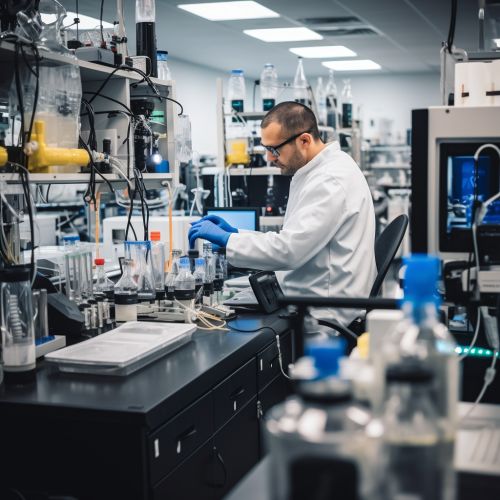The Role of Proteomics in Drug Discovery and Development
Introduction
Proteomics is a comprehensive study of proteins, including their structures and functions. It plays a crucial role in drug discovery and development, providing valuable insights into disease mechanisms and aiding in the identification of novel drug targets. This article delves into the role of proteomics in drug discovery and development, discussing its various applications, techniques, and challenges.


Proteomics and Drug Discovery
The process of drug discovery involves the identification of candidates, synthesis, characterization, screening, and assays for therapeutic efficacy. Proteomics, with its ability to analyze the entire protein content of a cell or organism, plays a pivotal role in this process.
High-throughput screening (HTS) is a method used in drug discovery to identify active compounds, antibodies, or genes which modulate a particular biomolecular pathway. Proteomics enhances this process by providing a comprehensive analysis of protein interactions and modifications, thereby identifying potential drug targets.
Proteomics Techniques in Drug Discovery
Various proteomics techniques are employed in drug discovery. These include mass spectrometry (MS), two-dimensional gel electrophoresis (2D-GE), and protein microarrays.
Mass spectrometry is a powerful tool for protein identification and quantification. It allows for the analysis of complex protein mixtures and the identification of post-translational modifications.
Two-dimensional gel electrophoresis separates proteins based on their isoelectric point and molecular weight. This technique is often used in conjunction with mass spectrometry for protein identification.
Protein microarrays allow for the simultaneous analysis of thousands of proteins, making them a valuable tool for high-throughput screening in drug discovery.
Proteomics in Drug Development
Once a potential drug has been identified, it must undergo a series of rigorous testing and development before it can be approved for use. Proteomics plays a key role in this process by providing insights into the drug's mechanism of action, potential side effects, and efficacy.
Pharmacodynamics, the study of how a drug affects an organism, and pharmacokinetics, the study of how an organism affects a drug, are two key aspects of drug development. Proteomics contributes to these studies by providing a comprehensive analysis of protein interactions and modifications, thereby helping to predict and understand the drug's effects on the body.
Challenges and Future Directions
Despite its immense potential, proteomics faces several challenges in the field of drug discovery and development. These include the complexity of the proteome, the dynamic nature of proteins, and the difficulty in identifying low-abundance proteins.
However, advancements in technology and the development of novel proteomics techniques continue to push the boundaries of what is possible. The future of proteomics in drug discovery and development looks promising, with the potential to revolutionize the way we understand and treat diseases.
